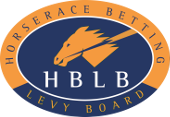Tuesday 13th October 2009
HBLB publishes 2010 Codes of Practice for prevention and control of equine infectious diseases
The Horserace Betting Levy Board (HBLB), has published its Codes of Practice for 2010. These are concerned with the prevention and control of equine infectious diseases which represent a potential major threat to equine breeding in Britain and include:
• Contagious equine metritis organism CEMO, Klebsiella pneumoniae and Pseudomonas aeruginosa;
• Equine viral arteritis (EVA)
• Equine herpesvirus (EHV)
• Equine coital exanthema (ECE)
• Equine infectious anaemia (EIA)
• Guidelines on strangles
For the 2010 breeding season several revisions have been made to the recommendations relating to the Contagious Equine Metritis organism (CEMO), including:
• the introduction of Polymerase chain reaction (PCR) testing of swabs for the CEMO, as an alternative to culture
• the removal of ‘low risk status’ for USA and Canada, for the screening of mares, following the 2008/9 outbreak of the disease in those countries
• changes to the CEMO swabbing protocol for ‘high risk’ walking-in mares
Chris Rea, Chairman of the Codes of Practice Sub-Committee, said:
“The Codes of Practice have been a first choice of reference for over 30 years and have undoubtedly contributed to the relatively low level of infectious disease affecting the equine breeding population in Britain.”
The Codes of Practice will be available from today in booklet format and on the HBLB website in PDF format.
For free copies of the Codes, contact equine.grants@hblb.org.uk or telephone 020 7333 0043.
The HBLB also provides a laboratory approval scheme. Those laboratories that are approved for testing for the CEMO, Klebsiella pneumoniae and Pseudomonas aeruginosa for the 2010 season will be listed on the HBLB website – www.hblb.org.uk – from 1 December 2009.
Notes for editors:
One of the HBLB’s statutory functions is to apply horserace betting levy income for purposes conducive to the advancement or encouragement of veterinary science or veterinary education.
An expert Sub Committee of the HBLB’s Veterinary Advisory Committee reviews the Codes of Practice annually. The Sub Committee includes representatives of the Thoroughbred breeders in Britain, Ireland, France, Germany and Italy; the non-Thoroughbred sector; Defra; specialist equine veterinary practitioners; and scientists expert in infectious disease.
The Codes of Practice are published by HBLB in advance of the Thoroughbred breeding season each year. They are widely available, free of charge, throughout the equine industry in Britain and overseas. The 2010 Code of Practice is the 32nd edition.
